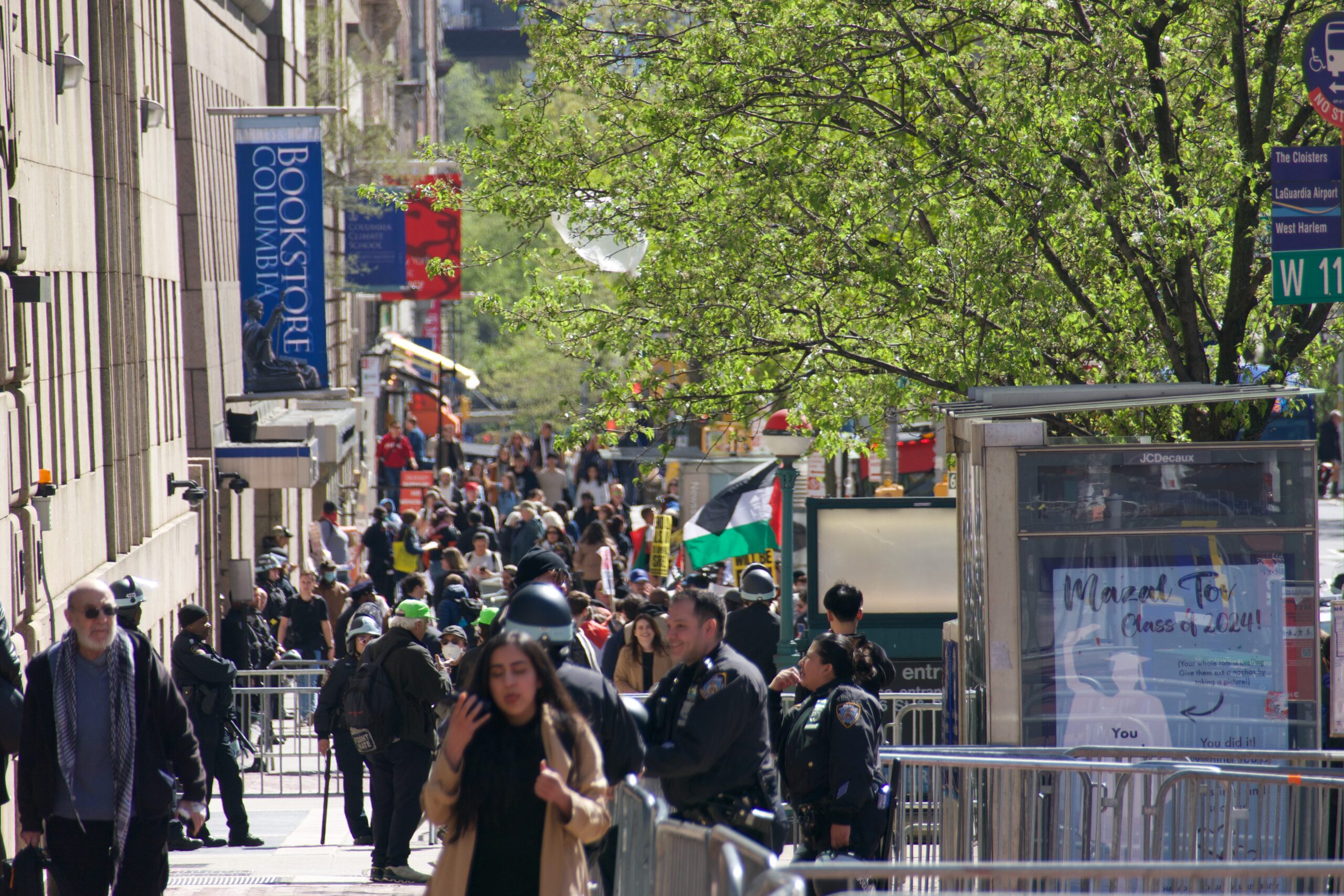American universities are besieged by students protesting their schools’ investments in U.S. suppliers of weaponry to the Israeli government, which Israeli officials are using to carry out their military campaign in Gaza. Some universities are now calling in riot police to break up the protests as well as suspending or expelling the protestors. Some university officials and their supporters in the mainstream press are accusing the protestors of being antisemitic.
The accusation of being antisemitism from supporters of the Israeli government is a longstanding one. The supporters are saying that when one opposes the polices and practices of the Israeli government — or the Israeli state itself — that shows that one is antisemitic — that is, that one not only opposes the Israeli government but also that he hates Jews in general. That response has always been a very successful strategical way to suppress dissent against the Israeli government. Since many people do not wish to be perceived as antisemitic, they decide to keep their criticisms of the Israeli government to themselves rather than being labeled as antisemitic.
However, in conflating the Israeli government with Judaism, the proponents of the Israeli government end up actually encouraging antisemitism. That’s because critics of the Israeli government who don’t know much about Judaism are induced to believe that the Israeli government and the Jewish faith are one and the same thing. Therefore, if one concludes that the Israeli state is doing something immoral or bad, the notion is that the immoral and bad act is also part of the Jewish religion. Therefore, conflating the Israeli state and the Jewish religion as a strategic device to suppress dissent against the Israeli government actually serves to encourage the very antisemitism that defenders of the Israeli government lament.
During the child-abuse crisis in the Catholic Church, there were people who criticized the Vatican for what they perceived was indifference to child abuse on the part of the Catholic state. As far as I know, the Vatican never made it a policy to respond to the criticisms by accusing critics of being anti-Catholic. Such being the case, people were able to discern that while indifference to child abuse might well have been part of the Catholic state, it was not part of the Catholic religion. Thus, people could separate out the two concepts by criticizing the Vatican while not being perceived as being anti-Catholic.
Let’s assume, however, that the Vatican or its supporters had responded in the same way that defenders of the Israeli state respond. Let’s assume that they said that the criticisms of the Vatican reflected the religious prejudice of the critics. That is, the defenders of the Vatican would be saying that if you criticize the Vatican, it shows that you are prejudiced against Catholics. In that case, one could easily imagine people who didn’t know much about Catholicism would conclude that Catholicism and the Vatican were one and the same thing. Therefore, given that they opposed what they perceived to be the Vatican’s indifference to child abuse, the conflation of the Vatican and Catholicism would encourage them to oppose Catholicism as much as they opposed the Vatican.
Therefore, to diminish antisemitism, the defenders of the Israeli government would be wise to discard their strategy of conflating the Israeli state and the Jewish faith as a way to suppress dissent against the Israeli state. They should instead be emphasizing that the Israeli state and the Jewish religion are two separate and distinct things and that the policies and practices of the Israeli state are not necessarily the tenets of the Jewish religion. In that way, students and others would feel free to criticize the Israeli state while, at the same time, support and embrace the Jewish religion.
Reprinted with permission from Future of Freedom Foundation.


